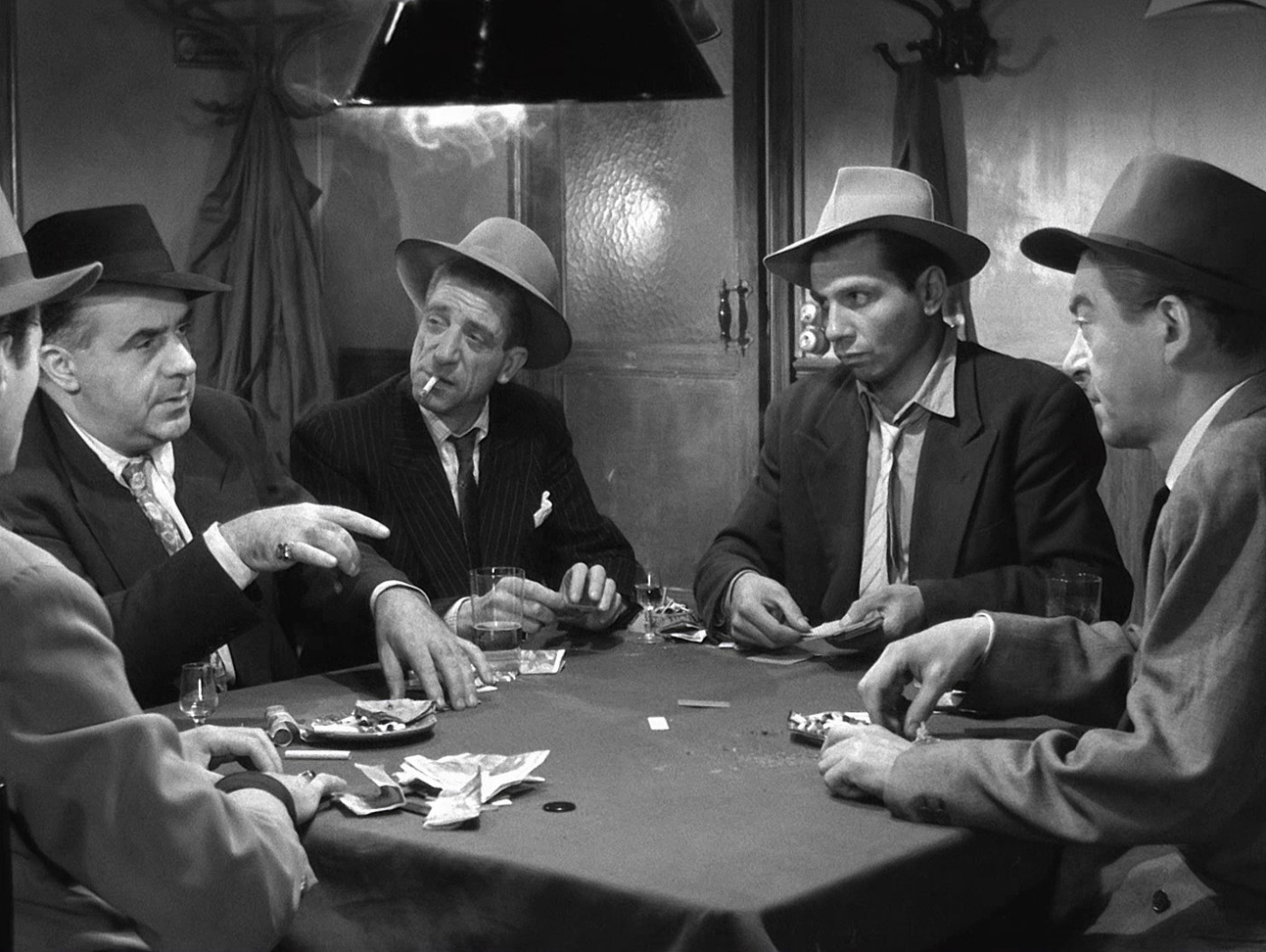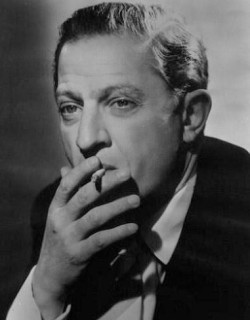
Six Close Encounters 2015 / Du rififi chez les hommes / France 1955
Michaël R.Roskam presents
Soon after his release from prison, Tony hooks up with some friends and an Italian safecracker to rob a high-rent jewelry store. Although the plan is technically perfect, as usually happens, one of the perpetrators makes a fatal mistake. The suspenseful, dusky film noir atmosphere is thick enough to cut with a knife.…


Rififi is a French slang word meaning violent confrontation, or the kind of brute show of force that almost always accompanies the promise of big bucks. Prison hasn’t changed Tony – as soon as he gets out he starts plotting to rob a high-rent Paris jewellery store. Initially, together with trusted cronies Jo and Mario, he plans on stealing some jewels from the shop window, yet when Mario secures the services of his safecracking Italian compatriot César, Tony decides to do something different. The ingenious robbery goes according to plan, except for the fact that César shouldn’t have secretly stolen a diamond ring for his mistress, who, unfortunately, sings in a nightclub owned by a certain Pierre Grutter. It doesn’t take long for Grutter to find out who’s behind the sensational heist and he will stop at nothing to get in on the take. With its sombre atmosphere and unembellished images of the streets and dusky corners of Paris, the film is treasured to this day by cinephiles as a superb example of film noir. And the half-hour scene that gives a detailed and tacit account of the actual robbery was apparently taken as an instruction manual for thieves the world over.
Zdena Škapová
Introduced by Michaël R. Roskam.
122 min / Black & white, 35 mm
Director Jules Dassin
/ Screenplay Jules Dassin, René Wheeler, Auguste Le Breton podle stejnojmeného románu / based on the novel of the same name by August Le Breton
/ Dir. of Photography Philippe Agostini
/ Music Georges Auric
/ Editor Roger Dwyre
/ Art Director Alexandre Trauner
/ Producer Henri Bérard, Pierre Cabaud, René Bézard
/ Production Pathé Consortium Cinéma
/ Cast Jean Servais, Carl Möhner, Robert Manuel, Janine Darcey
/ Sales Gaumont
/ Contact BFI

Jules Dassin (1911, Middletown, Connecticut – 2008, Athens) came from a family of Russian-Jewish immigrants. He grew up in Harlem and, in the 1930s, joined the Communist Party of the United States, which he then left after Stalin signed the pact with Hitler. While his films Brute Force (1947), The Naked City (1948) and Thieves’ Highway (1949) earned him a place among the leading representatives of American post-war film and film noir, he found himself on the Hollywood blacklist during the McCarthy era, and so he went off to work in Europe, first to France and, after his marriage to Melina Mercouri, to Greece. His best known film is the drama Rififi (1955), made on a minimal budget and with little known actors. Other important titles include Night and the City (1950), He Who Must Die (1957), Topkapi (1964), Up Tight (1968) and Promise at Dawn (1970). He also worked in theatre all his life.
Gaumont
30 avenue Charles de Gaulle, 92 200, Neuilly sur Seine
France
Phone: +33 146 432 060
E-mail: [email protected]
BFI
21 Stephen Street, W1T 1LN, London
United Kingdom
Phone: +44 207 255 1444
Fax: +44 207 436 7950
E-mail: [email protected]

Anne-Sophie Martel
Sales Agent
First-hand brews throughout the year.
Be among the first to learn about upcoming events and other news. We only send the newsletter when we have something to say.